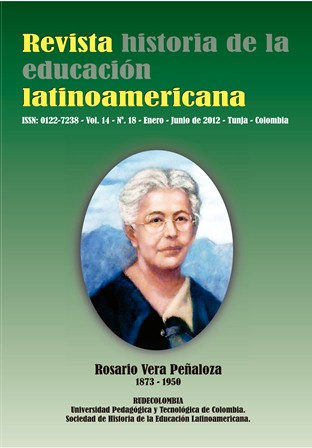TEACHING MEHTOD IN COLOMBIAN COUNTRY SIDE EDUCATORS 1946-1994

Abstract
This paperwork is about political and practical evolution related to teaching, skill developing and improvement of country side teachers in Colombia in the time between 1946 and 1994. It brings four specific and fundamental topics: Country side educators during the second conservative regime, Reformation and structure of Teaching schools during the second half of 20th century, skill development and teaching improvement, lessons by credits and micro centers in country side areas.This is an Hermeneutical study, it has a methodollogical support in documents and sources for plans, programms, laws, and articles or bills of colombian constitution, as well as memoirs of Education Minister in the congress chamber of The Republic of Colombia,In the same line secondary sources were analysed, these were research journals and documents about education during those ages. Article concludes that teaching, proving and testing processes of country side educators was stoped mainly because of change and modernization procedures that were stablished during 1946 til 1994 .Teaching and profesional tutoring of country side educators ( both male and female) was not outlined from soci cultural context that may have allowed face dynamics and complexity of traditional life style of peasants, on the countrary it was well related to global trends which ideological structure was related to production, globalization and modernization without any modernity at all.
Keywords
Journal of Latin American Education History country side Educators, articles, education politics, reformation.